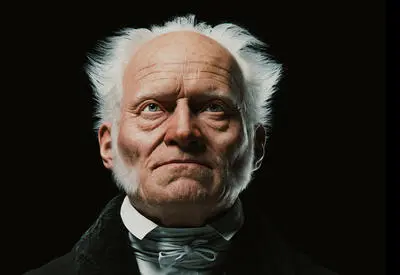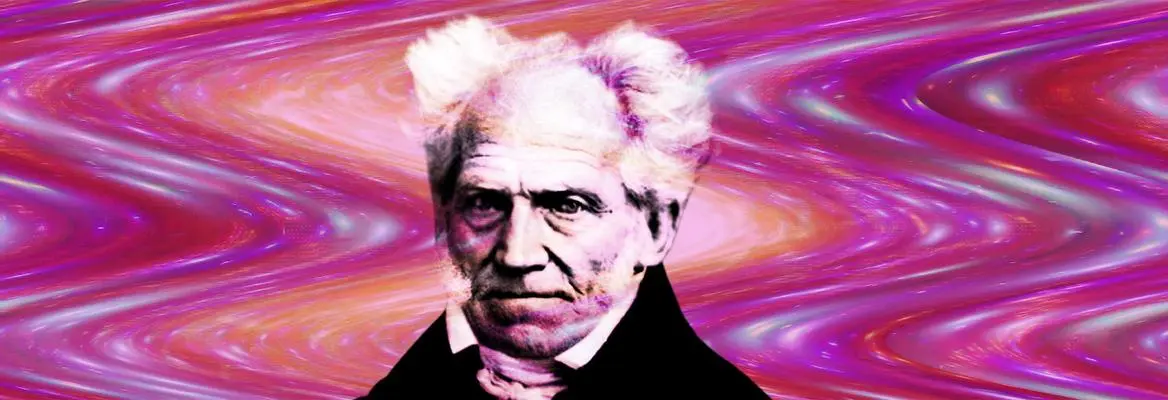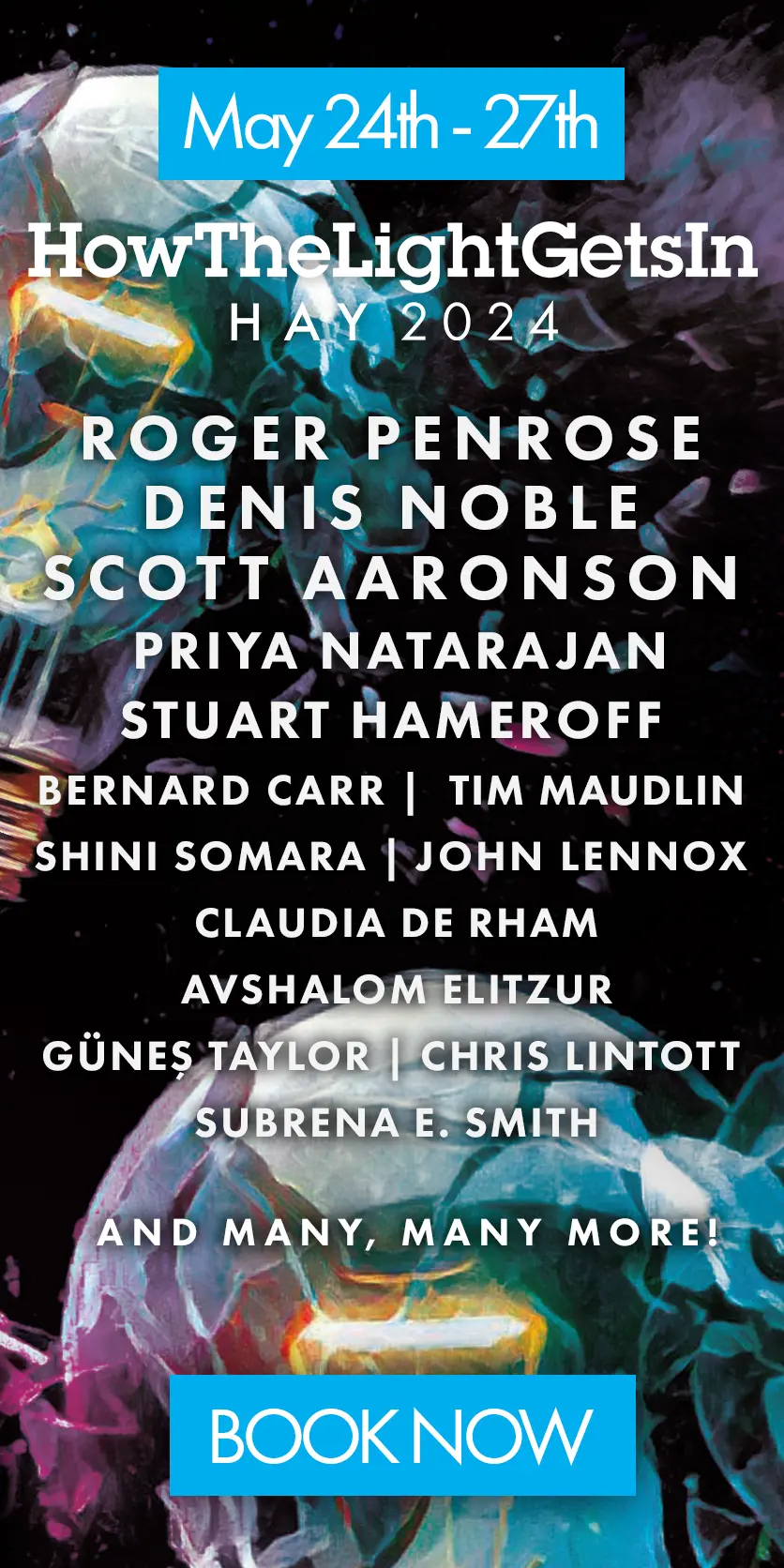The perpetual battle between predator and prey in nature is a display of a gruesome will, a will-to-live at the ground of all things. While the bloody mess we see when a tiger catches its prey suggests no hint of compassion, humans can consciously deny our will and seek to reduce the Sisyphean suffering of the world, writes Robert Wicks.
 SUGGESTED READING
Schopenhauer vs Nietzsche: The meaning of suffering
By Joshua Foa Dienstag
SUGGESTED READING
Schopenhauer vs Nietzsche: The meaning of suffering
By Joshua Foa Dienstag
We may be all too familiar with roses as a rule, but it remains intriguing to look at a beautiful rose and wonder what forces, or perhaps intelligence, led its stem to be studded with protective thorns that say to the observer, “keep your distance.” There are insects whose form is virtually indistinguishable from twigs and leaves, flowers that look like bumble bees and birds of paradise, and plants whose leaves have transformed into traps that catch and digest flies. Observing the movements of an axolotl – a kind of salamander that looks like a fish with legs – can be the occasion for endless fascination and speculation about the forces that underly the diversity and ingenious creativity of the forms that life can assume.

There may be mechanical explanations for the physical appearances of such plants, insects, and animals that refer us to environmental pressures, genetic mutations, chemical or physiological considerations coupled with mere chance, and many accept these as sufficiently satisfying from a scientific standpoint. It is nonetheless difficult to set aside the possibility that the fish transformed its fins into legs because it somehow wanted to get out of the water, that the plant developed its leaves into a trap because it somehow wanted to catch and eat the flies that were resting on its leaves, that the insect somehow transformed its appearance into that of a twig because it somehow discerned a better way to survive. If there is a “somehow” here, as anthropomorphic as it sounds, it cannot be our ordinary idea of wanting something and consciously making a plan, but a more primitive force – a kind of unconscious desire or “will” – situated not in the external, measurable, weighable, observable physical constitution, but in the plants’, insects’, and animals’ inner being. This would not be a consciousness with explicit desires in the usual sense, or a consciousness at all – Schopenhauer is not a panpsychist – but a more metaphysically basic condition that develops “into” a consciousness only in more advanced life forms.
___
Schopenhauer was an avowed atheist, but he was also a person of profound spirituality and compassion for every living being that suffers.
___
Just as one can look at any person and wonder what thoughts are passing through the person’s mind, one can observe the rest of the world and wonder what comparable mystery resides on the inside of a plant, or any other life form, or even a rock. Schopenhauer approached everything with a metaphysical curiosity of this kind, trying to grasp from the inside what he called the “riddle of the world.”
From this philosophical position, the external world presents only half of the story, and a superficial one at that: again, just as our consciousness is private to ourselves and indiscernible from the perspective of others – you do not experience my consciousness and I do not experience yours – not only people and animals, but everything can be thought metaphysically to have an inner being. Schopenhauer believed that the most appropriate word for this inner being is “will,” which he regarded as a blind urge towards life, towards survival, towards reproduction, and attendant upon that blind urge, towards an existence destined for competition, violence, and all that accompanies it, in particular, suffering. He referred to it as der Wille zum Leben, translated alternatively as “the will-to-live” or the “the will-to-life,” identifying it with the Kantian “thing-in-itself” or ultimate ground of all that is.
Schopenhauer’s stark vision of nature stems from the political philosophy of Thomas Hobbes (1588-1679) who described our natural, uncivilized condition as a bellum omnium contra omnes, or “war of all against all."
Two centuries later, in the wake of the “death of God” thematic that emerged distinctly during the nineteenth century, Hobbes’s characterization assumed an impressively realistic and convincing quality, capturing the imaginations of philosophers such as Schopenhauer and Friedrich Nietzsche, whose philosophical projects sought for a way to render existence meaningful in an uncaring, godless world.
Schopenhauer offered a number of images to represent the cannibalistic reality of life, among the most memorable of which is the bulldog ant of Australia, which when cut in two, engages in a fight to the death between its head and tail.
Such is Will that when manifested as individuals, begins a war of all against all, which despite the multiplicity of appearances, is a war against and within itself. More heartrending and a cause for reflection is his description of a certain species of turtles:
[3"Junghuhn elates that in Java he saw an immense field entirely covered with skeletons, and took it to be a battle-field. However, they were nothing but skeletons of large turtles five feet long, three feet broad, and of equal height. These turtles come this way from the sea in order to lay their eggs, and are then seized by wild dogs (Canis rutilans); with their united strength, these dogs lay them on their backs, tear open their lower armour, the small scales of the belly, and devour them alive. But then a tiger often pounces on the dogs. Now all this misery is repeated thousands and thousands of times, year in year out. For this, then, are these turtles born. For what offence must they suffer this agony? What is the point of this whole scene of horror? The only answer is that the will-to-live thus objectifies itself." [4]
___
Schopenhauer’s philosophy resonates clearly with Buddhism, although his characterisation of life’s ills is more extreme.
___
Within the human sphere, Schopenhauer’s metaphysics of will implies that from the very start we are filled with insatiable desire wherein “for one wish that is fulfilled there remain at least ten that are denied," fated to frustration and a never-ending search for fulfilment. Drawing from ancient Greek imagery, he compared our situation and fate to that of Ixion, the Danaids, and Tantalus. One can add Sisyphus, who, with a measure of added defiance, Albert Camus comparably invoked in the 1940’s to symbolize life’s inherent frustration and absurdity. Quite remarkably, Schopenhauer anticipated the atmosphere of meaninglessness characteristic of twentieth-century existentialism over two hundred years ago, giving voice to an untimely and unfashionable position amidst the early nineteenth century age of progress. It is not surprising that he condemned Hegel’s optimism and widespread influence as the clear sign of a benighted philosophical culture.
This understanding of the world has brought to common characterizations of Schopenhauer the label “pessimist.” Schopenhauer indeed described himself as such and was proud to be a pessimist, albeit in a different sense of the word than what “downbeat” and “defeatist” suggest. He regarded it as a moral outrage to be an “optimist,” for he held optimists to be grossly insensitive to the suffering in the world, as if their hopeful belief in a great future society could outweigh or compensate for that suffering. And he was not alone in this. Dostoyevsky wrote in The Brothers Karamazov (1880) that the visions of social paradise, either in another world or on earth – visions characteristic of philosophers such as Kant, Hegel, and Marx, all of whom envision a higher harmony of society – are not worth the tears of a single tortured child, for those tears remain unatoned for.
[6From a Schopenhauerian standpoint, to be a pessimist is not to be a defeatist, but to be supremely compassionate with a universalistic awareness that takes on the sins of the world, so to speak, as Jesus is often described. Schopenhauer was an avowed atheist, but he was also a person of profound spirituality and compassion for every living being that suffers.
Within the violent world, as he saw it, the best response is to seek salvation, which translates into an effort to reduce suffering and attain a state of enlightened tranquillity. This, Schopenhauer maintained, is achievable through the minimization of desire – what he called the “denial of the will” – along with activities that dissolve our sense of individuality, and hence, reduce our tendency towards selfishness and feelings of alienation from other people which dampen our compassion. Experiencing beauty is one such activity, where we become so involved in contemplating an object’s perfected form that we lose our sense of self, become one with the object and transcend the “when” and “how” to concentrate solely on the “what,” namely the object’s form in its timeless presence.
With a more enduring effect, Schopenhauer referred to ascetic practice, which radically reduces desire. The thought is that if one wants less, one suffers less. He himself believed that the extreme reduction of desire promises a mystical, almost ecstatic awareness, so extraordinary that the scenes and values of the ordinary world diminish to utter insignificance, to “nothing,” as he states in the concluding words of The World as Will and Representation.[7]
In this celebration of mystical transcendence he was hardly a pessimist, although the experience is limited to only a few. On a more worldly level, the significant reduction of desire can generate a sense of liberation comparable to overcoming an addiction. We speak here of the blinding addiction to wanting insatiably more, whether it happens to be money, pleasure, fame, or power.
___
Upon realizing that we are all made of Will, a sense of deep guilt about our very constitution follows.
___
Schopenhauer’s philosophy resonates clearly with Buddhism, although his characterisation of life’s ills is more extreme. In his later years, he nonetheless identified with this religious outlook, displaying a large Burmese Buddha statue in his living room. At night he also often read the Upanishads – the oldest religious/philosophical texts from India – in the inspirational way that some read the Bible. He also believed that his thought captured the essence of Christianity, which in his rendition characterizes the world as a place of suffering that points towards a higher level of being, recalling Christian quietists such as Miguel de Molinos (1628-1696). Buddhism, Hinduism, and Christianity are kindred religious spirits for Schopenhauer, for they all harbour a fundamental criticism of life as ordinarily lived, namely, as a theatre of ignorance where selfishness dominates to obscure our common humanity, compassion, and chances for a higher consciousness.
Schopenhauer’s critical attitude towards life is peculiar, however, for his view that Will is the ultimate nature of reality leads to a feeling of extreme self-reproach: upon realizing that we are all made of Will – an energy that when manifested as the daily world, generates endless suffering as it ceaselessly eats away at itself – a sense of deep guilt about our very constitution follows, motivating a minimization of desire, or “denial-of-the-will” in a self-conscious turn against Will itself, against one’s very metaphysical substance. In a sense, we are made to be selfish, to desire more than we can ever have, and accordingly to suffer. Such has been, and will continue to be, the fate of billions. Despite how some who read Schopenhauer misleadingly suspect, Schopenhauer’s remedy is not suicide since it does nothing and takes one nowhere, but is rather a solution that is lived, namely, the experience of liberation that issues from divesting oneself of egoistic desires, becoming compassionate, and ultimately adopting a distanced view on the horrors that life presents.
In the end, from an enlightened standpoint, one sees life’s terrifying nature as one might later regard as an illusion, the monsters in a nightmare, or as one might later see the costumes that scared one on Carnival night as nothing but coloured clothes, or as one might in the morning, picture a noisy bar after an evening’s wild revelry with the music now silent, lit brightly in the sunlight with stale beer on the tables and cigarette butts on the ground, and finally, as one might acknowledge oneself as an individual, fated to disappear entirely with the passing of time while yet remaining as an everlasting aspect of the universe as a whole, or of Will as the thing-in-itself. Still, given the morally repulsive nature of Will, one is left to wonder whether there is any consolation in that kind of immortality.
 SUGGESTED READING
Schopenhauer’s sense of self
By Bernardo Kastrup
SUGGESTED READING
Schopenhauer’s sense of self
By Bernardo Kastrup
Camus said that of all kinds of fame, the least deceptive is the one that is lived, observing how “from the point of view of Sirius, Goethe’s works in ten thousand years will be dust and his name forgotten.”
[8]Such is how things appear looking back on the present moment from ten billion years hence. Perhaps for Schopenhauer, after reflecting upon his metaphysics of will and considering to the practical point, his search for tranquillity in view of a vicious world on the one side and the absolute disappearance of one’s consciousness on the other, we can say this: the only salvation worth having is the enlightenment that is lived, doing one’s defiant and Sisyphean bit to reduce suffering, in particular behind the scenes that sometimes can be so superficially and deceptively beautiful, in virtually everywhere one looks amongst the living.



















Join the conversation